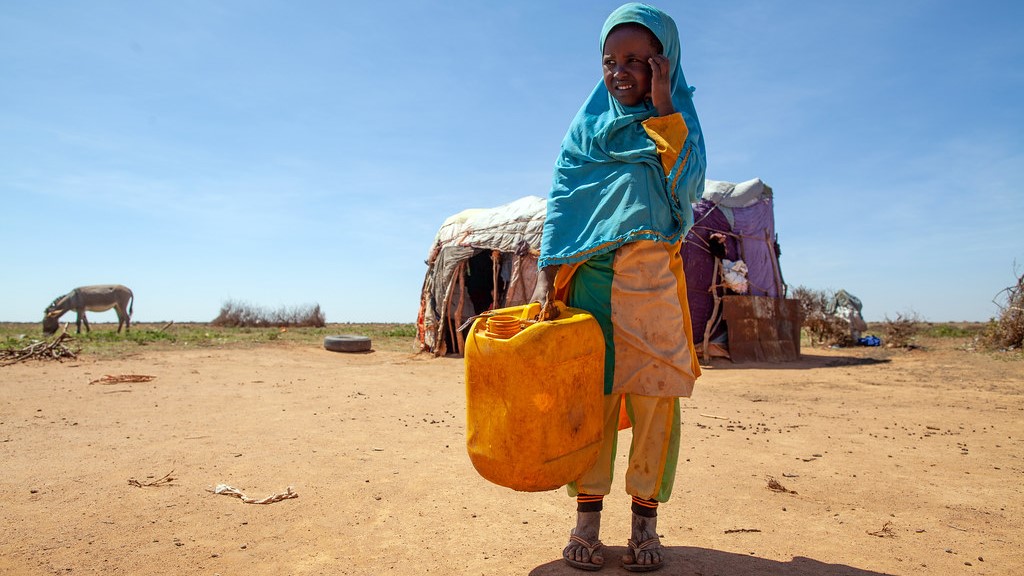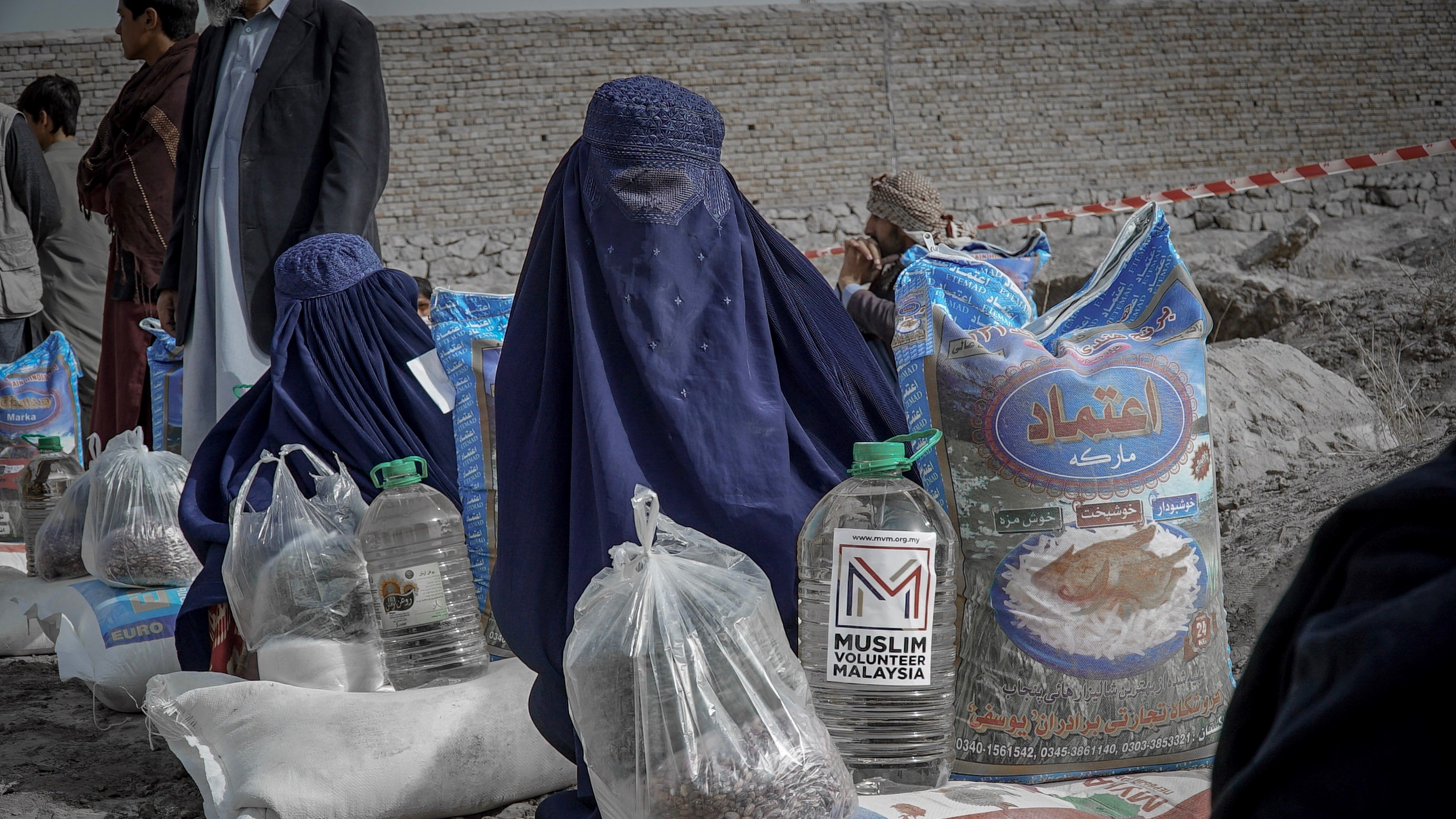On 5 September 2022, Dr Stuart Gordon chaired a panel event organised by the Afghanistan and Central Asian Association (ACAA) in the House of Commons marking one year since the Taliban takeover in Afghanistan. The discussion covered a range of the crises Afghans are facing in the aftermath, from severe food insecurity, to the restriction of women’s movement, to failures in immigration and asylum systems in the UK and elsewhere. After interviewing Dr Gordon, Navya Khanna shares an account of the event below.
Displacement, violence, and hunger have been an inescapable reality for Afghans for decades. The situation got even worse after the Taliban’s violent takeover last year. The country is suffering from acute malnutrition, drought, lack of development aid and mismanagement of funds in the financial sector.
On 5 September 2022, Afghanistan, and Central Asian Association (ACAA) organized a discussion to analyze the situation in Afghanistan after a year of the Taliban’s government. The panel of experts included Stephen Kinnock, Member of Parliament and Shadow Minister for Immigration, Dr Nooralhaq Nasimi, Director of ACAA, Yasmine Ahmed, UK Director of Human Rights Watch, Dr Philip Spoerri, Head of International Committee of the Red Cross Delegation to the UK and Ireland and Melissa Cornet, Advocacy Researcher Care International. The discussion was chaired by Dr Stuart Gordon, Programme Director for the International Development and Humanitarian Emergencies at the London School of Economics and Political Science.
Drawing on his first-hand experience as a refugee, Dr Nasimi highlighted the problems that refugees face on a day-to-day basis and how the ACAA is supporting those who have sought refuge in the UK through their grassroots services like English classes, women’s empowerment groups, girls’ football, legal advice etc. According to Human Rights Watch, the Taliban is preventing Afghan women from accessing their right to secondary education and livelihood, freedom of movement and individual expression.
Due to new restrictions on women’s movement, they are unable to reach aid distribution points in rural areas. Moreover, there are several constraints on Afghan women for working as aid workers which further prevents aid agencies from reaching women beneficiaries. Dr Gordon noted that several surveys by the World Food Programme (WFP) indicate that 100 per cent of female-headed households do not have enough to eat. They are forced to take “drastic measures” to obtain food, such as selling vital household items, sending children to work, or “selling” young girls for dowries. The elevated level of poverty has heightened the risk of child marriage as well. Even in areas in which women are still allowed to work in some jobs – primarily education and health care – they often find it difficult to comply with oppressive Taliban requirements, such as having a male family member escort them to work and even remain there throughout the workday.
During the discussion, Stephen Kinnock was critical of how the UK government handled the inflow of Afghan refugees into the country. He also pointed out that more than 10,000 Afghans are still languishing in hotels which costs £1.4 million a day to the taxpayer. Moreover, uncertainty regarding their settlement status has been a major cause of distress for them and their families. Kinnock accused the government of headline-grabbing and not making enough pathways for seeking asylum, forcing them to take life-threatening risks like relying on smugglers. He criticized the British government for abandoning Afghan nationals who worked for the government before the violent takeover. Yasmin Ahmed added that intervention by western countries has been counterproductive and concluded with a call to action:
“The withdrawal from Afghanistan was bungled and ill-planned and it is our responsibility not to look away from this diabolical situation.”
Dr Philip Spoerri said that 20 million people in Afghanistan have food insecurity and the country is suffering either level-3 “crisis” or level-4 “emergency” levels of food insecurity under WFP’s assessment system. During the interview, Dr Gordon unravelled the causes of this “man-made” crisis by outlining the economic nature of the catastrophe. The country’s banking system has been debilitated by decisions by the US and other governments in August 2021 to cut off Afghanistan’s Central Bank from the international banking system. Dr Gordon noted that this has led to a massive liquidity crisis and nationwide shortages of banknotes in US dollars along with the inability to print the Afghan currency, afghanis. Even when funds are transmitted electronically into banks to pay for humanitarian operations, wages, or remittances, banks’ lack of cash means that funds cannot be withdrawn. Private banks lack adequate local currency and US dollars to cover withdrawals, without significant assets on deposit, they are unable to extend credit. Moreover, the local banks are facing trouble in doing transactions with foreign banks as they fear that they might be violating UN and US sanctions.
He underlined the fact that before the Taliban’s takeover, Afghan’s economy was 75% dependent on foreign aid. The failure of the Taliban to reach an agreement with the US and other donor governments, provoked them to instruct the World Bank to cut off about $2 billion in international aid. Aid was crucial to pay the salaries of millions of teachers, health workers, and other essential workers. The International Monetary Fund (IMF), USAID, and the Asian Development Bank (ADB) also cut their funding. This drastically affected the income levels of Afghan households and significantly reduced their purchasing power. During the discussion, Ms. Ahmed stressed that there is food in the markets but there is no money to purchase food.
Dr Gordon also emphasized the reality that many humanitarian agencies working in Afghanistan have been utilizing informal and unregulated hawala money transfer systems or sarrafs, or money exchangers, to move funds into Afghanistan and pay salaries and obtain cash. These systems have imposed transactional costs – sometimes over 10%. This makes it hard to implement big-budget projects and pay humanitarian workers. Along similar lines, Dr Philip Spoerri said that “aid architecture” is needed to continue to invest in infrastructure.
Dr Gordon also highlighted the need to reexamine the sanctions on the Taliban due to its devastating impact of sanctions on the people of Afghanistan. He recognized the need for multilateral institutions such as the UN and the World Bank to be open to having negotiations with the Taliban to utilize a private bank or other entity, independent of the Central Bank, required to process payments for humanitarian projects and avoid brain drain. He argued that the step would improve the purchasing power of Afghan households and would advantage female headed households whose incomes depended on food security and cash transfer programs. During the discussion, panellists such as Yasmin Ahmed called out The Home Office for taking resources from Afghanistan to support Ukraine. They stressed the dire need to expand funding and increase intake of asylum seekers from three categories: women and girls, ethnic and religious minorities, and LGBTQ+.
One can argue that these suggestions need to be implemented for the immediate relief of the millions of Afghans. However, it is equally crucial for the governments and the different UN agencies to engage in meaningful dialogue with Afghanistan’s civil society to bring durable solutions.
The views expressed in this post are those of the author and do not reflect those of the International Development LSE blog or the London School of Economics and Political Science.
Image credit: Women in Kunduz City receiving humanitarian aid, November 2021 by Wanman uthmaniyyah on Unsplash.





